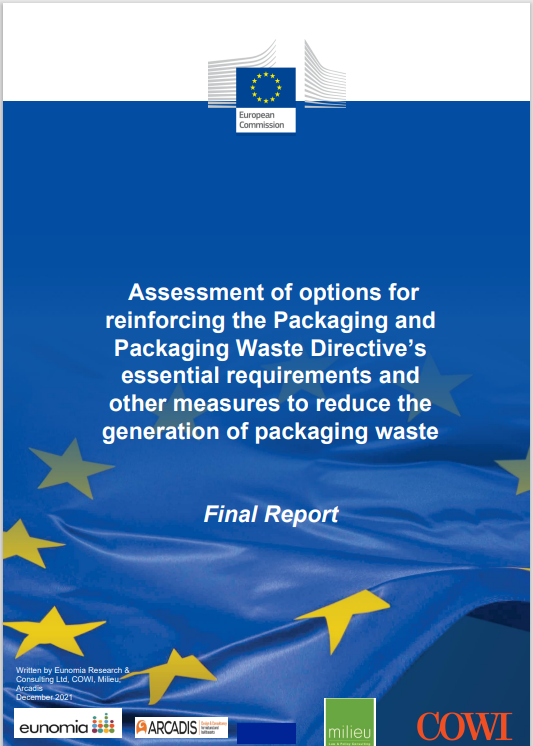| 1 x afterRenderRawModule mod_menu (Temi) (292.99KB) (15.81%) | 39.74ms |
| 1 x afterRenderRawModule mod_menu (Main Menu) (21.86KB) (11.69%) | 29.39ms |
| 1 x afterRenderComponent com_content (528.96KB) (11.52%) | 28.96ms |
| 1 x afterRender (801.09KB) (10.1%) | 25.39ms |
| 1 x After Access::preloadPermissions (com_content) (16.77MB) (7.64%) | 19.19ms |
| 1 x afterInitialise (3.35MB) (7.56%) | 19.01ms |
| 1 x afterRenderRawModule mod_articles_categories (Ambiente) (478.69KB) (7.04%) | 17.69ms |
| 1 x beforeRenderRawModule mod_login (Accedi all'area riservata) (1.75MB) (4.62%) | 11.61ms |
| 1 x afterRenderRawModule mod_menu (Documenti Abbonati) (164.93KB) (2.51%) | 6.31ms |
| 1 x afterRoute (366.16KB) (2.35%) | 5.90ms |
| 1 x afterRenderRawModule mod_menu (Top Menu) (31.08KB) (1.84%) | 4.62ms |
| 1 x afterRenderRawModule mod_menu (Policies) (23.48KB) (1.71%) | 4.30ms |
| 1 x afterLoad (87.09KB) (1.5%) | 3.78ms |
| 1 x afterRenderRawModule mod_menu (Marketing) (20.39KB) (1.49%) | 3.74ms |
| 1 x beforeRenderRawModule mod_menu (Main Menu) (32.91KB) (1.37%) | 3.44ms |
| 1 x afterRenderRawModule mod_menu (Store) (18.38KB) (1.32%) | 3.31ms |
| 1 x afterRenderRawModule mod_menu (Social) (60.09KB) (1.25%) | 3.13ms |
| 1 x afterRenderRawModule mod_menu (Media) (14.41KB) (1.09%) | 2.73ms |
| 1 x afterRenderRawModule mod_login (Accedi all'area riservata) (64.04KB) (0.95%) | 2.38ms |
| 1 x afterRenderRawModule mod_menu (Info) (11.67KB) (0.87%) | 2.19ms |
| 1 x Before Access::getAssetRules (id:39543 name:com_content.article.19446) (514.65KB) (0.35%) | 869μs |
| 1 x Before Access::preloadComponents (all components) (34.53KB) (0.32%) | 800μs |
| 1 x beforeRenderComponent com_content (37.2KB) (0.27%) | 675μs |
| 1 x afterRenderModule mod_menu (Main Menu) (11.27KB) (0.24%) | 596μs |
| 1 x afterRenderModule mod_articles_categories (Ambiente) (14.5KB) (0.23%) | 569μs |
| 1 x afterRenderModule mod_menu (Policies) (3.3KB) (0.2%) | 513μs |
| 1 x afterRenderModule mod_menu (Media) (3.11KB) (0.2%) | 510μs |
| 1 x afterRenderModule mod_custom (Titolo "Ambiente") (2.67KB) (0.2%) | 510μs |
| 1 x afterRenderModule mod_menu (Temi) (22.67KB) (0.2%) | 509μs |
| 1 x afterRenderModule mod_menu (Documenti Abbonati) (3.94KB) (0.2%) | 508μs |
| 1 x afterRenderModule mod_menu (Info) (3.05KB) (0.2%) | 503μs |
| 1 x afterRenderModule mod_menu (Store) (3.3KB) (0.2%) | 502μs |
| 1 x afterRenderModule mod_menu (Social) (3.92KB) (0.2%) | 501μs |
| 1 x afterRenderModule mod_menu (Marketing) (3.3KB) (0.2%) | 491μs |
| 1 x afterRenderRawModule mod_custom (Certifico s.r.l.) (4.22KB) (0.19%) | 483μs |
| 1 x afterRenderModule mod_custom (Certifico s.r.l.) (3.36KB) (0.19%) | 483μs |
| 1 x beforeRenderRawModule mod_menu (Social) (41.43KB) (0.16%) | 411μs |
| 1 x After Access::preloadComponents (all components) (115.88KB) (0.14%) | 363μs |
| 1 x afterRenderModule mod_login (Accedi all'area riservata) (6.95KB) (0.12%) | 305μs |
| 1 x afterDispatch (2.44KB) (0.08%) | 209μs |
| 1 x afterRenderModule mod_custom (Regolamento Macchine) (5.08KB) (0.07%) | 184μs |
| 1 x After Access::getAssetRules (id:39543 name:com_content.article.19446) (12.67KB) (0.06%) | 144μs |
| 1 x afterRenderRawModule mod_custom (Regolamento Macchine) (1.03KB) (0.05%) | 119μs |
| 1 x afterRenderRawModule mod_custom (Titolo "Ambiente") (992B) (0.05%) | 114μs |
| 1 x afterRenderRawModule mod_custom (D. Lgs. 81/2008 - TUSSL) (928B) (0.04%) | 90μs |
| 1 x afterRenderRawModule mod_custom (Codice Prevenzione Incendi | RTO II) (3.41KB) (0.03%) | 86μs |
| 1 x afterRenderRawModule mod_custom (TUA | Testo Unico Ambiente) (928B) (0.03%) | 86μs |
| 1 x afterRenderRawModule mod_custom (Glossario Certifico HSE) (1.03KB) (0.03%) | 86μs |
| 1 x afterRenderRawModule mod_custom (D. Lgs. 101/2020 - Protezione esposizione radiazioni ionizzanti) (960B) (0.03%) | 86μs |
| 1 x afterRenderRawModule mod_custom (Direttiva macchine e norme armonizzate) (1.05KB) (0.03%) | 85μs |
| 1 x afterRenderRawModule mod_custom (CEM4 || Ultimo aggiornamento) (1.03KB) (0.03%) | 84μs |
| 1 x afterRenderRawModule mod_custom (MOCA - GMP | Consolidato) (1.03KB) (0.03%) | 84μs |
| 1 x afterRenderRawModule mod_custom (D. Lgs. 231/2001 - Responsabilità amministrativa enti) (960B) (0.03%) | 84μs |
| 1 x afterRenderRawModule mod_custom (Certifico ADR) (1.02KB) (0.03%) | 84μs |
| 1 x afterRenderRawModule mod_custom (Codice Unico Sicurezza) (928B) (0.03%) | 84μs |
| 1 x afterRenderRawModule mod_custom (Abbonamento Full Plus) (912B) (0.03%) | 84μs |
| 1 x afterRenderRawModule mod_custom (Store Certifico) (976B) (0.03%) | 84μs |
| 1 x afterRenderRawModule mod_custom (D. Lgs. 196/2003 - Codice protezione dati personali | GDPR) (960B) (0.03%) | 83μs |
| 1 x afterRenderRawModule mod_custom (Abbonamento Full) (912B) (0.03%) | 83μs |
| 1 x afterRenderRawModule mod_custom (Food Safety book) (12.02KB) (0.03%) | 83μs |
| 1 x afterRenderRawModule mod_custom (TUSSL / Link) (976B) (0.03%) | 82μs |
| 1 x afterRenderRawModule mod_custom (DM 21 Marzo 1973 | MOCA IT) (1.03KB) (0.03%) | 82μs |
| 1 x afterRenderRawModule mod_custom (MEPA) (960B) (0.03%) | 82μs |
| 1 x afterRenderModule mod_menu (Top Menu) (4.11KB) (0.03%) | 74μs |
| 1 x afterRenderModule mod_custom (D. Lgs. 81/2008 - TUSSL) (4.02KB) (0.03%) | 73μs |
| 1 x afterRenderModule mod_custom (Codice Prevenzione Incendi | RTO II) (4.16KB) (0.03%) | 72μs |
| 1 x afterRenderModule mod_custom (TUSSL / Link) (3.64KB) (0.03%) | 69μs |
| 1 x afterRenderModule mod_custom (Glossario Certifico HSE) (3.77KB) (0.03%) | 69μs |
| 1 x afterRenderModule mod_custom (CEM4 || Ultimo aggiornamento) (3.91KB) (0.03%) | 69μs |
| 1 x afterRenderModule mod_custom (D. Lgs. 196/2003 - Codice protezione dati personali | GDPR) (4.44KB) (0.03%) | 69μs |
| 1 x afterRenderModule mod_custom (TUA | Testo Unico Ambiente) (4.03KB) (0.03%) | 68μs |
| 1 x afterRenderModule mod_custom (D. Lgs. 231/2001 - Responsabilità amministrativa enti) (4.42KB) (0.03%) | 68μs |
| 1 x afterRenderModule mod_custom (Direttiva macchine e norme armonizzate) (4.16KB) (0.03%) | 67μs |
| 1 x afterRenderModule mod_custom (D. Lgs. 101/2020 - Protezione esposizione radiazioni ionizzanti) (4.44KB) (0.03%) | 66μs |
| 1 x afterRenderModule mod_custom (Certifico ADR) (3.89KB) (0.03%) | 66μs |
| 1 x afterRenderModule mod_custom (MOCA - GMP | Consolidato) (4.02KB) (0.03%) | 66μs |
| 1 x afterRenderModule mod_custom (DM 21 Marzo 1973 | MOCA IT) (4.03KB) (0.03%) | 66μs |
| 1 x afterRenderModule mod_custom (Abbonamento Full) (4.89KB) (0.03%) | 66μs |
| 1 x afterRenderModule mod_custom (Store Certifico) (3.58KB) (0.03%) | 66μs |
| 1 x afterRenderModule mod_custom (Food Safety book) (4.02KB) (0.03%) | 66μs |
| 1 x afterRenderModule mod_custom (MEPA) (3.75KB) (0.03%) | 66μs |
| 1 x afterRenderModule mod_custom (Codice Unico Sicurezza) (4.02KB) (0.03%) | 65μs |
| 1 x afterRenderModule mod_custom (Abbonamento Full Plus) (4.14KB) (0.03%) | 65μs |
| 1 x beforeRenderRawModule mod_menu (Top Menu) (2.56KB) (0.02%) | 52μs |
| 1 x beforeRenderRawModule mod_custom (Titolo "Ambiente") (2.2KB) (0.01%) | 27μs |
| 1 x beforeRenderRawModule mod_menu (Policies) (616B) (0.01%) | 26μs |
| 1 x beforeRenderRawModule mod_menu (Info) (440B) (0.01%) | 24μs |
| 1 x beforeRenderRawModule mod_menu (Documenti Abbonati) (1.96KB) (0.01%) | 23μs |
| 1 x beforeRenderRawModule mod_custom (Certifico s.r.l.) (2.29KB) (0.01%) | 22μs |
| 1 x beforeRenderRawModule mod_menu (Temi) (904B) (0.01%) | 22μs |
| 1 x beforeRenderRawModule mod_custom (Regolamento Macchine) (13.7KB) (0.01%) | 13μs |
| 1 x beforeRenderRawModule mod_menu (Media) (912B) (0%) | 9μs |
| 1 x beforeRenderRawModule mod_menu (Store) (912B) (0%) | 9μs |
| 1 x beforeRenderRawModule mod_menu (Marketing) (896B) (0%) | 9μs |
| 1 x beforeRenderRawModule mod_articles_categories (Ambiente) (2.36KB) (0%) | 8μs |
| 1 x Before Access::preloadPermissions (com_content) (1.51KB) (0%) | 7μs |
| 1 x beforeRenderRawModule mod_custom (D. Lgs. 81/2008 - TUSSL) (13.5KB) (0%) | 7μs |
| 1 x beforeRenderRawModule mod_custom (Codice Prevenzione Incendi | RTO II) (2.25KB) (0%) | 6μs |
| 1 x beforeRenderRawModule mod_custom (TUSSL / Link) (1.48KB) (0%) | 6μs |
| 1 x beforeRenderRawModule mod_custom (Direttiva macchine e norme armonizzate) (1.27KB) (0%) | 6μs |
| 1 x beforeRenderRawModule mod_custom (TUA | Testo Unico Ambiente) (2.38KB) (0%) | 5μs |
| 1 x beforeRenderRawModule mod_custom (Glossario Certifico HSE) (2.38KB) (0%) | 5μs |
| 1 x beforeRenderRawModule mod_custom (CEM4 || Ultimo aggiornamento) (2KB) (0%) | 5μs |
| 1 x beforeRenderRawModule mod_custom (D. Lgs. 231/2001 - Responsabilità amministrativa enti) (2.09KB) (0%) | 5μs |
| 1 x beforeRenderRawModule mod_custom (D. Lgs. 196/2003 - Codice protezione dati personali | GDPR) (2.22KB) (0%) | 5μs |
| 1 x beforeRenderRawModule mod_custom (D. Lgs. 101/2020 - Protezione esposizione radiazioni ionizzanti) (2.72KB) (0%) | 5μs |
| 1 x beforeRenderRawModule mod_custom (Certifico ADR) (2.77KB) (0%) | 5μs |
| 1 x beforeRenderRawModule mod_custom (MOCA - GMP | Consolidato) (2.5KB) (0%) | 5μs |
| 1 x beforeRenderRawModule mod_custom (Codice Unico Sicurezza) (2.25KB) (0%) | 5μs |
| 1 x beforeRenderRawModule mod_custom (DM 21 Marzo 1973 | MOCA IT) (1.63KB) (0%) | 5μs |
| 1 x beforeRenderRawModule mod_custom (Abbonamento Full) (2.39KB) (0%) | 5μs |
| 1 x beforeRenderRawModule mod_custom (Abbonamento Full Plus) (2.38KB) (0%) | 5μs |
| 1 x beforeRenderRawModule mod_custom (Store Certifico) (3.27KB) (0%) | 5μs |
| 1 x beforeRenderRawModule mod_custom (Food Safety book) (2.52KB) (0%) | 5μs |
| 1 x beforeRenderRawModule mod_custom (MEPA) (2.05KB) (0%) | 5μs |
| 1 x beforeRenderModule mod_login (Accedi all'area riservata) (736B) (0%) | 3μs |
| 1 x beforeRenderModule mod_menu (Temi) (704B) (0%) | 3μs |
| 1 x beforeRenderModule mod_menu (Social) (704B) (0%) | 2μs |
| 1 x beforeRenderModule mod_menu (Media) (704B) (0%) | 2μs |
| 1 x beforeRenderModule mod_menu (Policies) (704B) (0%) | 2μs |
| 1 x beforeRenderModule mod_menu (Store) (704B) (0%) | 2μs |
| 1 x beforeRenderModule mod_menu (Marketing) (704B) (0%) | 2μs |
| 1 x beforeRenderModule mod_articles_categories (Ambiente) (704B) (0%) | 2μs |
| 1 x beforeRenderModule mod_menu (Top Menu) (704B) (0%) | 2μs |
| 1 x beforeRenderModule mod_menu (Main Menu) (704B) (0%) | 2μs |
| 1 x beforeRenderModule mod_menu (Info) (704B) (0%) | 2μs |
| 1 x beforeRenderModule mod_custom (Certifico s.r.l.) (720B) (0%) | 2μs |
| 1 x beforeRenderModule mod_menu (Documenti Abbonati) (720B) (0%) | 2μs |
| 1 x beforeRenderModule mod_custom (TUSSL / Link) (720B) (0%) | 1μs |
| 1 x beforeRenderModule mod_custom (D. Lgs. 231/2001 - Responsabilità amministrativa enti) (752B) (0%) | 1μs |
| 1 x beforeRenderModule mod_custom (Regolamento Macchine) (720B) (0%) | 1μs |
| 1 x beforeRenderModule mod_custom (D. Lgs. 81/2008 - TUSSL) (720B) (0%) | 1μs |
| 1 x beforeRenderModule mod_custom (Codice Prevenzione Incendi | RTO II) (736B) (0%) | 1μs |
| 1 x beforeRenderModule mod_custom (TUA | Testo Unico Ambiente) (736B) (0%) | 1μs |
| 1 x beforeRenderModule mod_custom (Glossario Certifico HSE) (720B) (0%) | 1μs |
| 1 x beforeRenderModule mod_custom (CEM4 || Ultimo aggiornamento) (736B) (0%) | 1μs |
| 1 x beforeRenderModule mod_custom (D. Lgs. 101/2020 - Protezione esposizione radiazioni ionizzanti) (768B) (0%) | 1μs |
| 1 x beforeRenderModule mod_custom (Direttiva macchine e norme armonizzate) (736B) (0%) | 1μs |
| 1 x beforeRenderModule mod_custom (Certifico ADR) (720B) (0%) | 1μs |
| 1 x beforeRenderModule mod_custom (MOCA - GMP | Consolidato) (736B) (0%) | 1μs |
| 1 x beforeRenderModule mod_custom (Codice Unico Sicurezza) (720B) (0%) | 1μs |
| 1 x beforeRenderModule mod_custom (DM 21 Marzo 1973 | MOCA IT) (736B) (0%) | 1μs |
| 1 x beforeRenderModule mod_custom (Abbonamento Full) (720B) (0%) | 1μs |
| 1 x beforeRenderModule mod_custom (Abbonamento Full Plus) (720B) (0%) | 1μs |
| 1 x beforeRenderModule mod_custom (Food Safety book) (720B) (0%) | 1μs |
| 1 x beforeRenderModule mod_custom (MEPA) (704B) (0%) | 1μs |
| 1 x beforeRenderModule mod_custom (Titolo "Ambiente") (720B) (0%) | 1μs |
| 1 x beforeRenderModule mod_custom (D. Lgs. 196/2003 - Codice protezione dati personali | GDPR) (768B) (0%) | 0μs |
| 1 x beforeRenderModule mod_custom (Store Certifico) (720B) (0%) | 0μs |




















